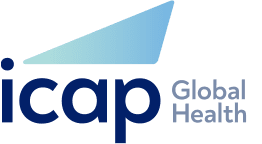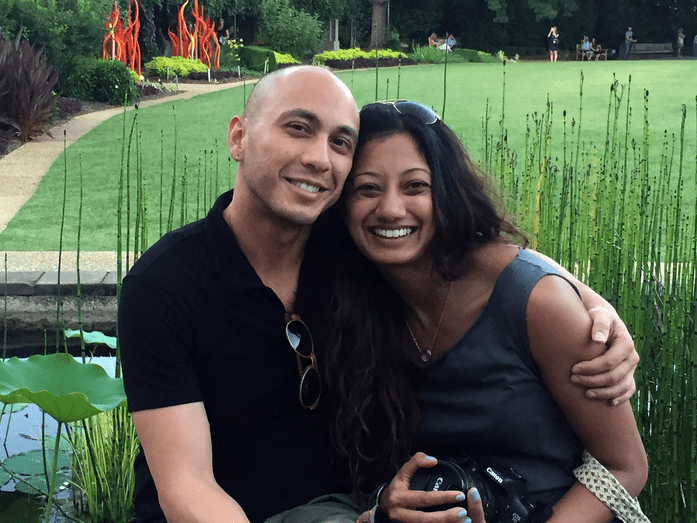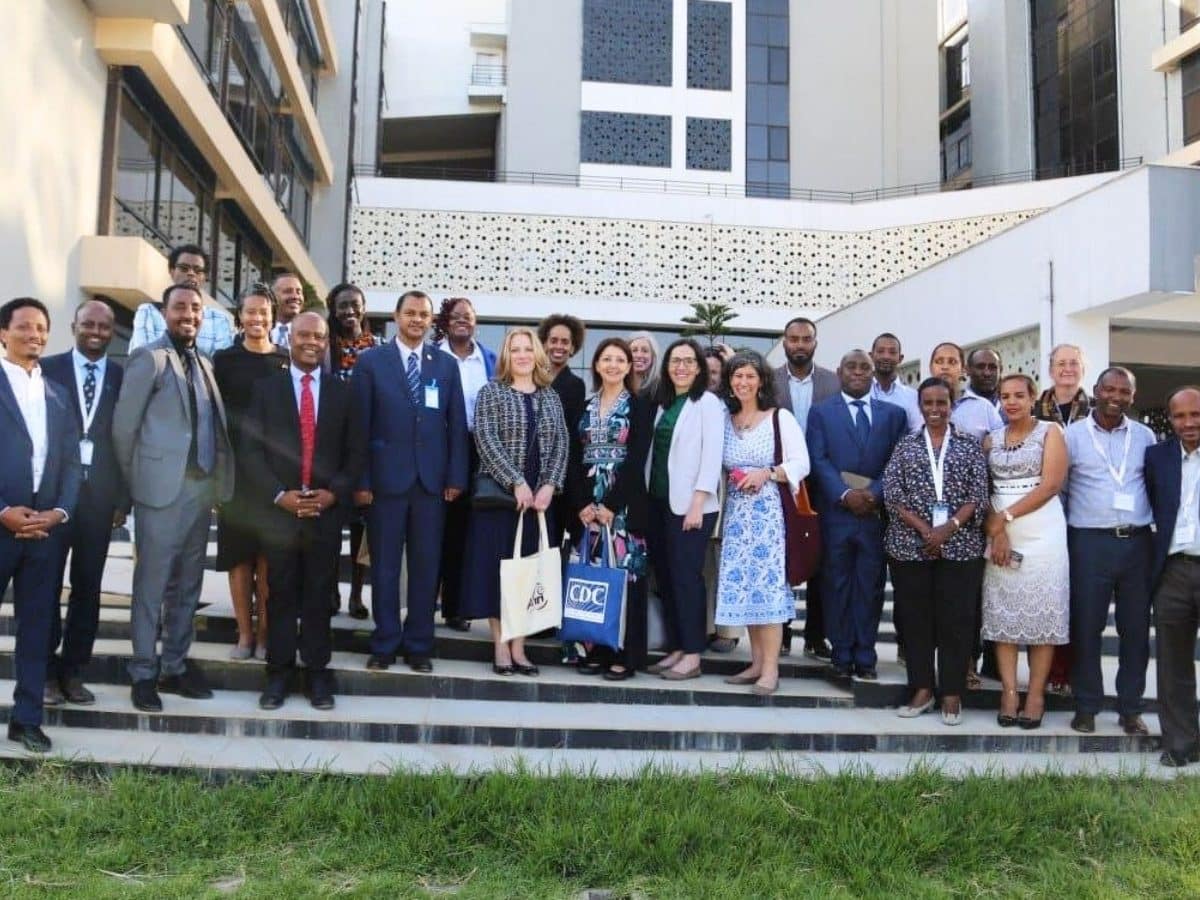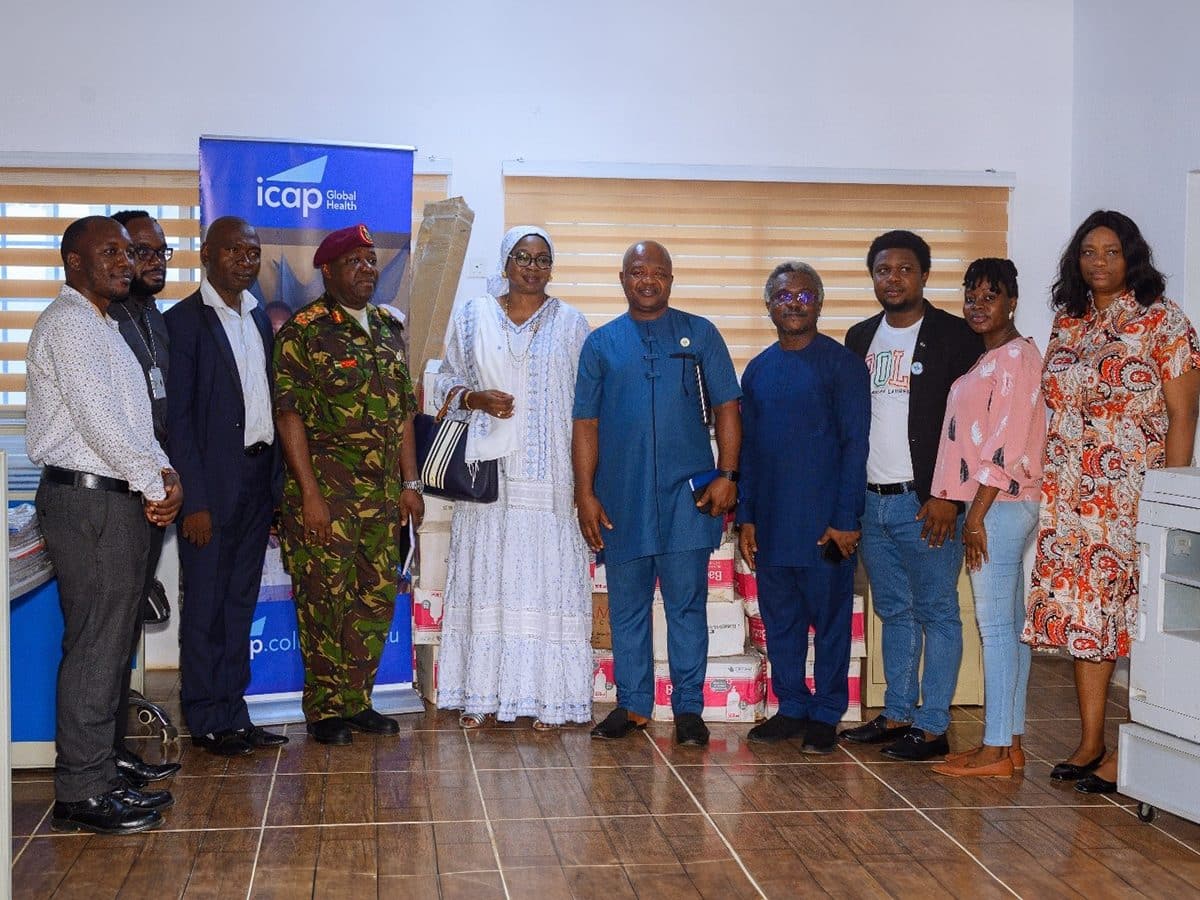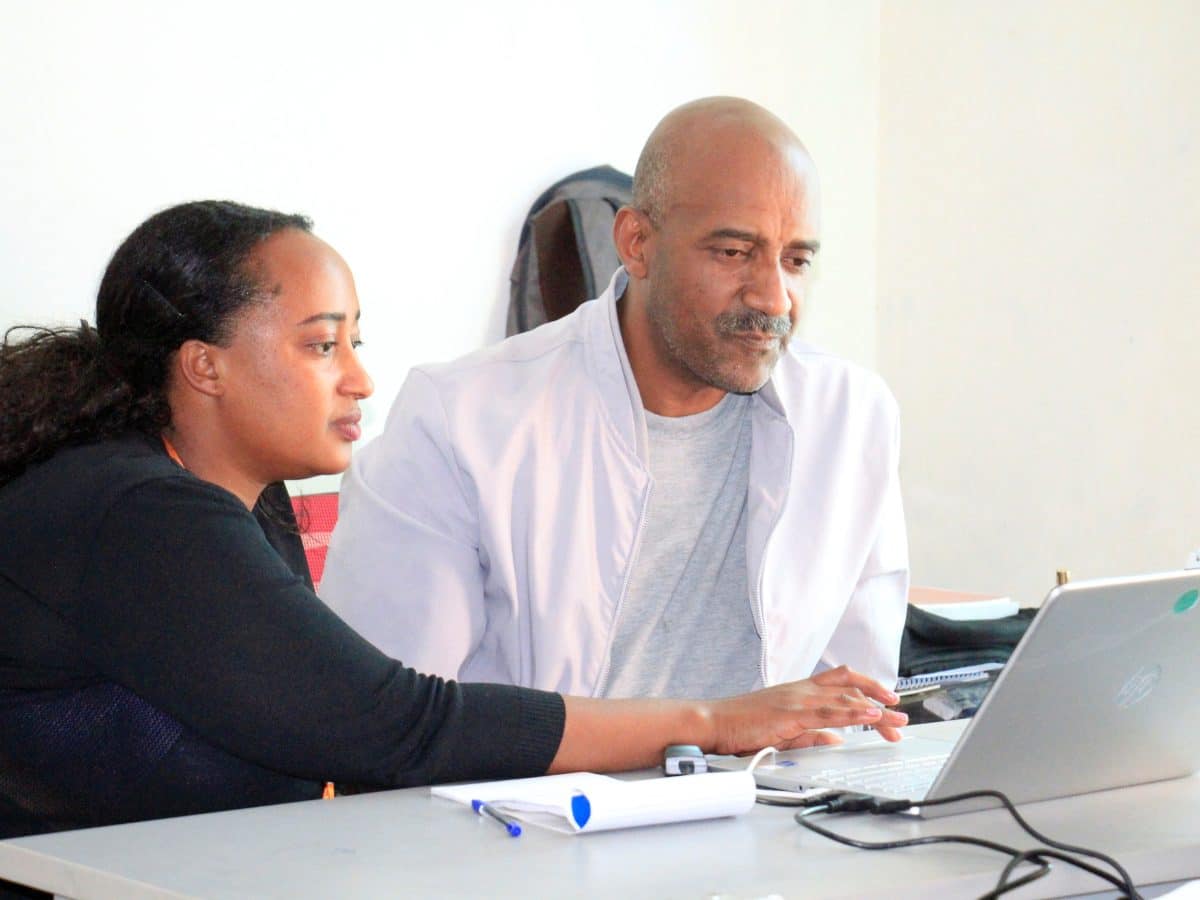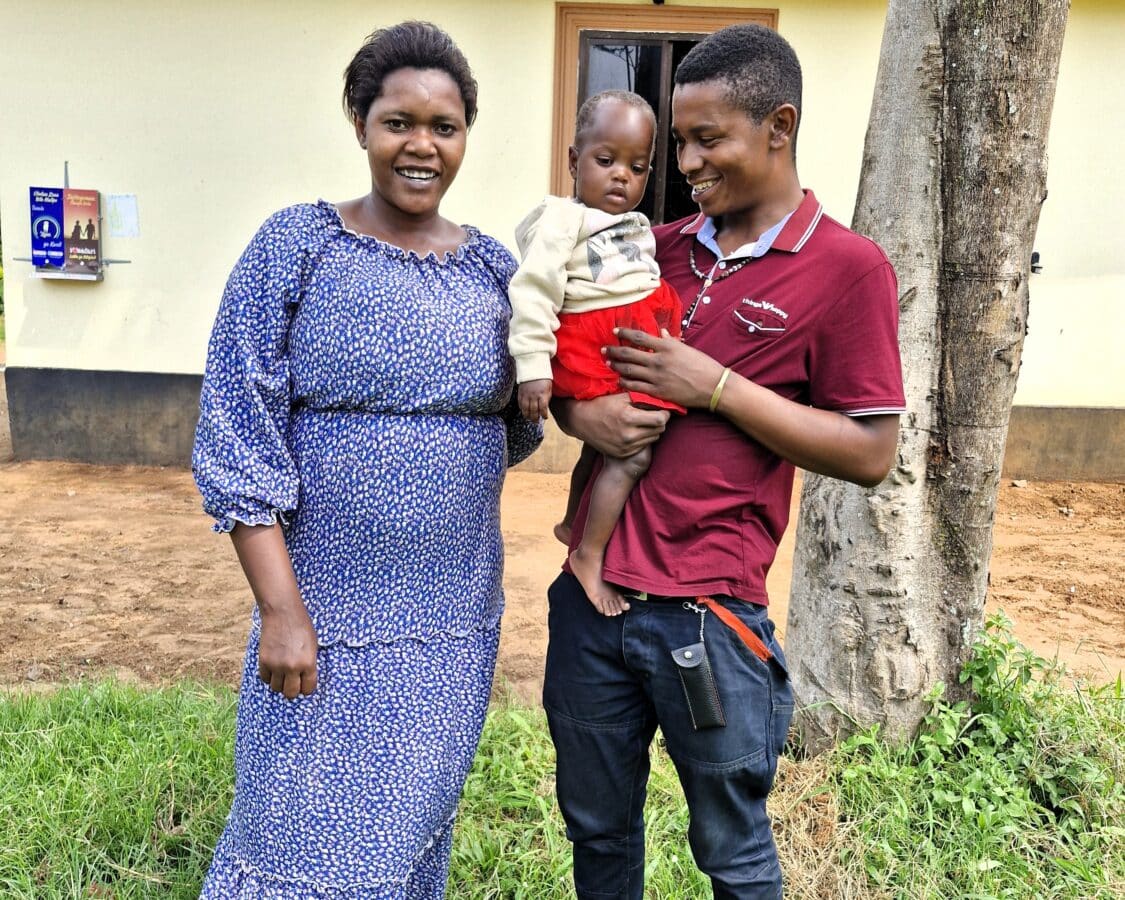In mid-March, producers from New York Times’ television show, The Weekly, approached Lawrence Purpura, MD, MPHTM, MS, and his wife Saleena Subaiya, MD, about being featured in an episode of the new documentary series that would focus on COVID-19 first responders. Purpura is a Global HIV Implementation Science Research Training Program fellow at ICAP. His wife is an emergency room attending physician at NYU Langone.
Purpura was initially hesitant.
“There is such a tremendous amount of responsibility that comes with telling these stories in the media,” said Purpura, who wants to portray the positive side of the COVID-19 response.
Ultimately, Purpura overcame his trepidation. He and Subaiya are slated to appear on season two of the The Weekly, to be broadcast on FX and Hulu this summer. The couple have been documenting their lives for several weeks now through video diaries, recording themselves doing yoga, cooking dinner, making and dropping off meals and baked goods to their hospitals, and talking to members of their Bushwick community. The dynamic duo even have a group of friends that drop off around 30 meals at their apartment every week, which Subaiya takes to her emergency room shifts.
“Both Saleena and I have made it a point to not just focus on the pain and trauma that we are processing, but to also focus on the inspiring and wonderful things people are doing,” he said.
However, it has not been easy to retain a sense of normalcy in these COVID-19 times. As an ER physician, Subaiya’s hours have gone up almost 30 percent. Subaiya works one overnight shift each week. During the same week, she alternates between three back-to-back day shifts, and three back-to-back night shifts. This makes every moment Purpura and Subaiya spend together highly precious.
“Pre-COVID, we were able to navigate our different hours, but it’s been more of a challenge in the post-COVID situation,” said Purpura.
Purpura himself worked continuous shifts, spending sleepless nights triaging patients and, as part of the Columbia University Irving Medical Center epidemiology team, figuring out whom to send for coronavirus testing when the pandemic initially hit New York City. His involvement in the COVID-19 response has been fluid and evolving. During the second week of the COVID response, Purpura joined a team of infectious disease clinicians tasked with responding to questions surrounding the care of COVID-19 patients. Now, most of his days involve giving teams guidance on how to approach and manage COVID-19 patients.
“It was hard at first to find the balance,” he says. “It just seemed like every minute, every hour, and every day things were changing, and, if we didn’t push to our limit at that point, we wouldn’t have been able to meet the curve.” New York City is now seeing a glimmer of hope in battling the coronavirus, thanks to health care providers like Purpura and his wife, who are among the many who sacrificed time and hours to save lives.
“I hope to highlight (in the docuseries) our lives as a couple who are both health care providers, to show how we support each other and also how our little community has supported us during the outbreak response.”
Community support is a concept that had echoed throughout Purpura’s life, even long before he knew he wanted to be a doctor.
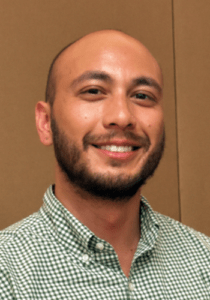 Purpura was born and raised in Pittsburgh, Pennsylvania, in an Italian Filipino household. His father is a primary care physician, and his mother manages his father’s practice. Every year, his parents would assist with medical projects in the Philippines, supporting communities there with medical supplies. “In the background of my childhood, there was always this global health undertone. I would say that my value of service came from my parents.”
Purpura was born and raised in Pittsburgh, Pennsylvania, in an Italian Filipino household. His father is a primary care physician, and his mother manages his father’s practice. Every year, his parents would assist with medical projects in the Philippines, supporting communities there with medical supplies. “In the background of my childhood, there was always this global health undertone. I would say that my value of service came from my parents.”
Purpura, however, did not decide on medical school until his mid-twenties.
Three years after graduating with a bachelor’s in psychology from the University of Pittsburgh. Purpura was considering a PhD in neuroscience when he got a volunteer opportunity in Brazil for a month to work at a non-profit on a hand hygiene and sanitation project. That is when he decided he wanted to become a public health clinician. “It was just one of those moments where I think everything I had seen growing up, especially with my parents’ efforts, resonated with me. I ended up coming back from that project and made a shift in my career goals.” After a couple of years volunteering for different water hygiene and sanitation projects with non-profits, including one he personally started, Purpura enrolled in the Tulane University School of Medicine.
After Tulane, Purpura was accepted into the Epidemiology Intelligence Service Fellowship with the U.S. Centers for Disease Control and Prevention (CDC) in Atlanta and was assigned to a branch that focuses on hemorrhagic fevers. That fellowship took him to West Africa, where he assisted with contact tracing, testing, and counseling for Ebola survivors, as well as overall technical assistance support in Sierra Leone and Liberia.
After working on the Ebola response, Purpura found himself missing the interaction with patients, and decided to get more training in infectious diseases. “I have always viewed and envisioned myself in a career where I get to do both—I would love to be both a practicing clinician and a public health practitioner.”
Hence the ICAP Implementation Science Fellowship. “The fellowship seemed to be a perfect fit because it allowed me to continue some of the projects I had already started brainstorming and working on while gaining guidance and mentorship from ICAP,” he said.
Purpura is a second-year postdoctoral fellow with ICAP, and a third-year clinical infectious diseases fellow with Columbia University’s Department of Medicine. He also works in the HIV Prevention Program, with New York City’s Bureau of HIV Prevention and Control. “The common thread between my pre-training years and now is my desire to treat patients and become a public health practitioner. My values haven’t changed since I was in my mid-twenties, and it feels good.”
Even though the fight against the coronavirus outbreak has disrupted Purpura’s fellowship responsibilities, he still finds normalcy in his Tuesday afternoon lectures with ICAP. “I’m also very grateful for the past two years. The ICAP fellowship has allowed me to continue learning my data analysis skills. I’m improving on them and putting them to real-time use during the COVID-19 response.”
Purpura’s life has changed during the crisis. Like many people whose lives have been affected by the coronavirus, Purpura and doctors like him are adapting. For example, non-urgent health care facilities are shifting to telehealth visits where necessary. Purpura can only guess that this will be the new normal for a while. He hopes that the New York Times documentary will highlight the positives that have come as a result of the COVID-19 response.
A global health leader since 2003, ICAP was founded at Columbia University with one overarching goal: to improve the health of families and communities. Together with its partners—ministries of health, large multilaterals, health care providers, and patients—ICAP strives for a world where health is available to all. To date, ICAP has addressed major public health challenges and the needs of local health systems through 6,000 sites across more than 30 countries.

